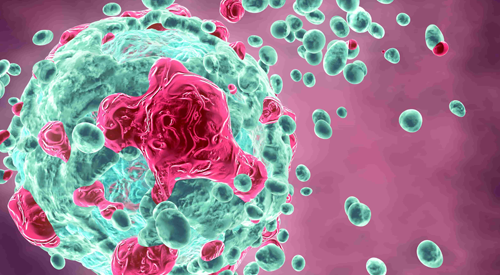
Skin Cancer
Latest News
Latest Videos

More News

The CD40 agonist sotigalimab in combination with pembrolizumab yielded promising outcomes in patients with unresectable stage III or IV metastatic melanoma.

An improved progression-free survival benefit was observed in patients with stage III unresectable or stage IV melanoma who received nivolumab plus ipilimumab.

Hussein A. Tawbi, MD, PhD, principal investigator of the phase 2/3 RELATIVITY-046 trial, highlights the importance of relatlimab/nivolumab’s recent FDA approval in melanoma.

Oncology Nursing News® speaks with Hussein A. Tawbi, MD, PhD, principal investigator of the phase 2/3 RELATIVITY-046 trial, about the significance of the relatlimab/nivolumab approval for patients with unresectable or metastatic melanoma.

The doublet regimen of relatlimab/nivolumab has been approved for adults with unresectable or metastatic melanoma.

Manufacturers will unblind trials evaluating bempegaldesleukin/nivolumab in melanoma in light of the final progression-free survival and overall response rates analyses.

Weekly phone calls from RNs helped reduce the number of severe adverse events experienced by patients receiving ipilimumab for metastatic melanoma.

Tebentafusp, the first FDA-approved treatment option for patients with unresectable or metastatic uveal melanoma, may cause mild cytokine release syndrome, an expert explains.

Oncology Nursing News® meets with the lead investigator behind the phase 3 IMCgp100-202 trial to better understand the significance of tebentafusp’s approval and to determine what oncology nurses need to know about the new agent.

LAG-3 represents a potentially relevant immune checkpoint pathway in melanoma treatment.

Tebentafusp is now the first FDA-approved therapy to treat unresectable or metastatic uveal melanoma.

Dr. Hussein Tawbi, MD, PhD, explains the rationale behind the RELATIVITY-047 trial in melanoma and how the LAG-3 findings could further revolutionize immunotherapy.

An expert from The University of Texas MD Anderson Cancer Center offers advice on the best diet to enrich a patient’s microbiome and consequent immunotherapy response.

An expert from The University of Texas MD Anderson Cancer Center highlights findings demonstrating the impact that diet and probiotics have in immunotherapy responses.

New data support increased fiber consumption and decreased probiotic use among patients receiving immunotherapy.

A novel regimen of relatlimab, an LAG-3 inhibitor, plus nivolumab doubled progression-free survival in patients with untreated, advanced melanoma.

Patients with various solid tumor types experienced improved antitumor immunity after adhering to a diet with severe caloric restrictions.

Pembrolizumab has been approved for the adjuvant treatment of adults and pediatric patients with stage IIB or IIC melanoma who have underwent complete resection.

Patients receiving immune checkpoint inhibitors for renal cell carcinoma or melanoma responded well to the COVID-19 vaccine.

After 6 months of additional follow-up, patients with resected high-risk stage II melanoma continued to experience improved relapse-free survival following treatment with adjuvant pembrolizumab.

Patients with metastatic melanoma treated with the IL-2 agonist experienced a 78.5% change in target lesion size.

The FDA has determined that more data are necessary to certify the clinical benefit of retifanlimab for the treatment of squamous cell carcinoma of the anal canal.

The Food and Drug Administration has approved pembrolizumab for the treatment of patients with a locally advanced form of skin cancer.

While merkel cell carcinoma (MCC) tends to have poor prognoses and limited treatment options, promising response rates with checkpoint inhibitors may pave the way for better treatment for the rare skin cancer.

Nivolumab with or without ipilimumab improved survival over ipilimumab alone in patients with previously untreated advanced melanoma.





























































































